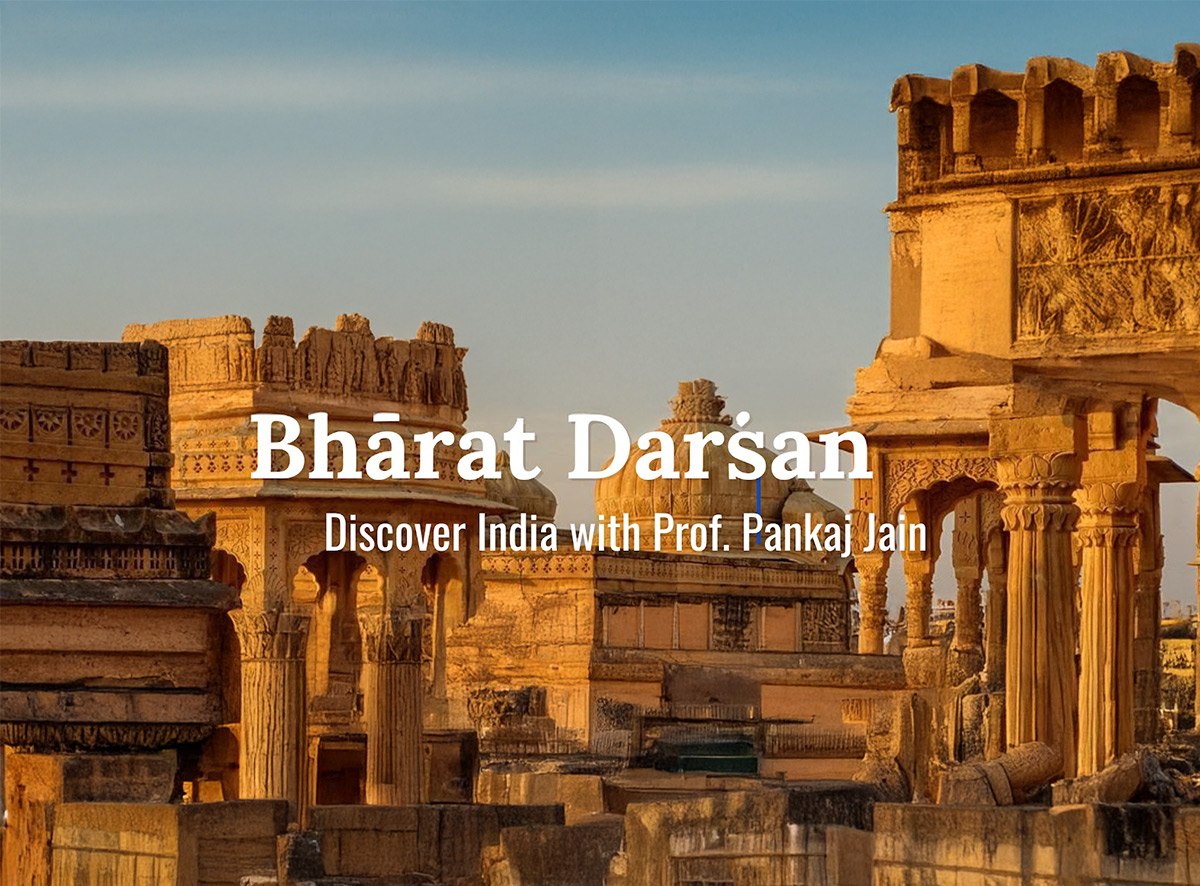The India Centre
Indian Knowledge Systems: Webinars
India Studies Webinar | India’s Role as a Global Player in a Complex Interdependent World Order
Explore India’s potential as an emerging global power in shaping a multipolar world order—one that challenges unilateralism and hegemonism. Delve into critical questions about India’s role in advancing the global South, addressing security and strategic challenges, reshaping the UN Security Council, and resolving ethnic and religious conflicts in South Asia.
India Studies Webinar | Abhinavagupta and ‘non-duality’ (advaita)
When Abhinavagupta (!. c. 975-1025 CE) argues for ‘absolute non-duality’ (paramādvaita) as a fundamental principle of everything, what does he mean? This fundamental meta-category subsumes within itself both ‘duality’ (dvaita or bheda) and ‘non-duality’ (advaita or abheda) in a resolution that, on the surface, appears to be nothing more than an oxymoron. How can
two mutually opposing categories be one? However, for Abhinavagupta, both ‘duality’ and ‘non-duality’ are the basic building blocks of an all-encompassing singular meta-category called ‘absolute non-duality’ (paramādvaita). This version of non-duality argues for inclusivism, i.e., for any idea of binary to manifest, someone fundamentally recognises the
distinction between, for instance, a ‘pot’ (ghaṭa) and a ‘non-pot’ (aghaṭa) and it is this distinction (dvaita or bheda) that unitarily brings a pot and a non-pot together (advaita or abheda). By saying this, Abhinavagupta is not suggesting that a pot is a non-pot and a non-pot is a pot. But they are singular manifestations in a plural form of and in a singular principle, i.e., non-dual consciousness (advaitasamvit). Using a more contemporary terminology, this form of non-duality may be called ‘pluralistic non-dualism’ or ‘subjective pluralism’, understood in the sense that even two mutually opposing labels, such as ‘pluralistic idealism’ or ‘idealistic realism’, can be used.
In Defence of Sanskrit: The Many Voices and Visions of a Literature by Shonaleeka Kaul
Contrary to modern misconceptions that associate Sanskrit with narrow obscurantism, this talk serves as a reminder of the vast and diverse repertoire of this remarkable literary tradition. Sanskrit has encompassed not only nearly every knowledge system known to humankind but also a multiplicity of voices and perspectives. However, contemporary scholarship often labels Sanskrit as elitist and disconnected from the wider world. This talk challenges this assumption by examining a range of Sanskrit texts, moving towards a deeper appreciation of its reach and relevance in early India.
Historiography of the Sulbasutras Abstract by Bhaskar Kamble
In 1979, Abraham Seidenberg published the second of his groundbreaking articles, evaluating the role of the Sulbasutras in the history of mathematics and highlighting the dismissive treatment they received from mainstream historical narratives. Despite this, there has been no systematic attempt to trace how the general consensus about the Sulbasutras’ significance has evolved since they were first introduced to the Western world in 1875 by Georg Thibaut. This talk addresses this gap by examining the writings of key figures such as Moritz Cantor, Otto Neugebauer, and others whose works played a significant role in reducing the Sulbasutras to little more than a footnote in the history of mathematics.
The Nature of Endangerment in India: Tigers, 'Tribes', Extermination & Conservation, 1818-2020
Perhaps no category of people on earth has been perceived as more endangered, nor subjected to more preservation efforts, than indigenous peoples. And in India, calls for the conservation of Adivasi culture have often reached a fever pitch, especially amongst urban middle-class activists and global civil society groups. But are India’s ‘tribes’ really endangered? Do they face extinction? And is this threat somehow comparable to the threat of extinction facing tigers and other wildlife? The talk combines years of fieldwork and archival research with intensive theoretical interrogations-about what is perceived to be the fundamental question for nearly all indigenous peoples in the modern world: the question of survival.
SANSKRIT, LINGUISTICS AND AI By GIRISH NATH JHA
The talk, while presenting the nuances of Indian multilingual situations, will focus on similarity of methods used in Sanskrit grammar, Linguistics and AI. In this context, there will be a presentation of the contributions of Panini, Saussure and Chomsky leading to the emergence of computational linguistics and AI. The National Education Policy of India launched in 2020 lays special emphasis on Mother Tongue education which poses real implementation challenges considering the multitude of languages and speech communities in India. While discussing the challenges posed by educating the millions in India, requirements of a flexible, scalable and cost-effective AI will be presented. The talk will survey the work being done in this area and will present implementation challenges and suggest solutions for designing, developing and deploying smart systems for delivering multilingual content.
Public Lectures
Workshop on Appayya Dīkṣita: July 8-12, 2024
The India Centre, FLAME University organised an international reading workshop on Appayya Dīkṣita from July 8 to 12, 2024.
The sixteenth to eighteenth century was a vibrant time in Sanskrit intellectual culture, and recent scholarship has demonstrated that a study of Sanskrit intellectual culture during this period is also important for our understanding of various developments in colonial and post-Independence India. A figure who shaped various disciplines in Sanskrit intellectual culture during this period, and exemplified many of the tendencies that informed it, was Appayya Dīkṣita (1520-1593), a figure who has drawn much scholarly attention over the past decade. Scholars are coming to realise that not only was Appayya an exceptional thinker with contributions in ritual hermeneutics, grammar, metaphysics, soteriology, and aesthetics, but that he reshaped most of these fields for the next several centuries.
In a five-day-long intense international workshop organised by the India Centre, specialists from various parts of India and the world came together to read three key works in Appayya Dīkṣita’s oeuvre: the Śivārkamaṇidīpikā (a Vedānta work), Citramīmāṃsā (a work within alaṅkāra, a branch of Sanskrit aesthetics), and Vidhirasāyana (a work in Mīmāṃsā, or Vedic ritual hermeneutics). The Śivārkamaṇidīpikā is a fascinating work where Appayya has commented on the writings of a figure called Śrīkaṇṭha. At the workshop, the participants focused particularly on Appayya’s citational practices and his employment of a variety or reading strategies in his scriptural exegesis as he commented on some of Śrīkaṇṭha’s verses. They also discussed in some details Appayya’s engagement with Mīmāṃsā (Vedic ritual hermeneutics) in his Vedānta writing. This led to interesting conversations about how scriptural authority played out around the sixteenth century, what texts may have been current at the time, and how Appayya employed different kinds of strategies to varied ends.
The AI Centre at FLAME University discussed their work with Devanagari manuscripts and OCR with the workshop participants.
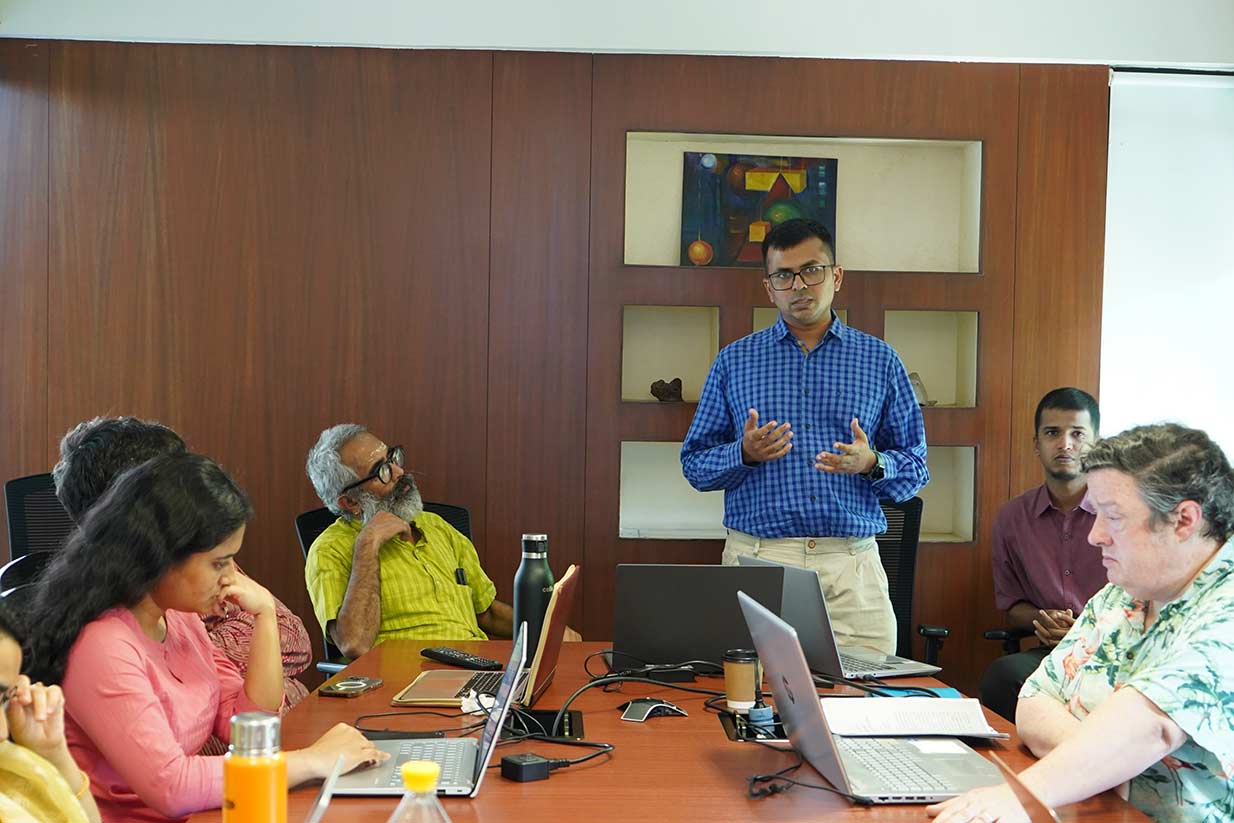
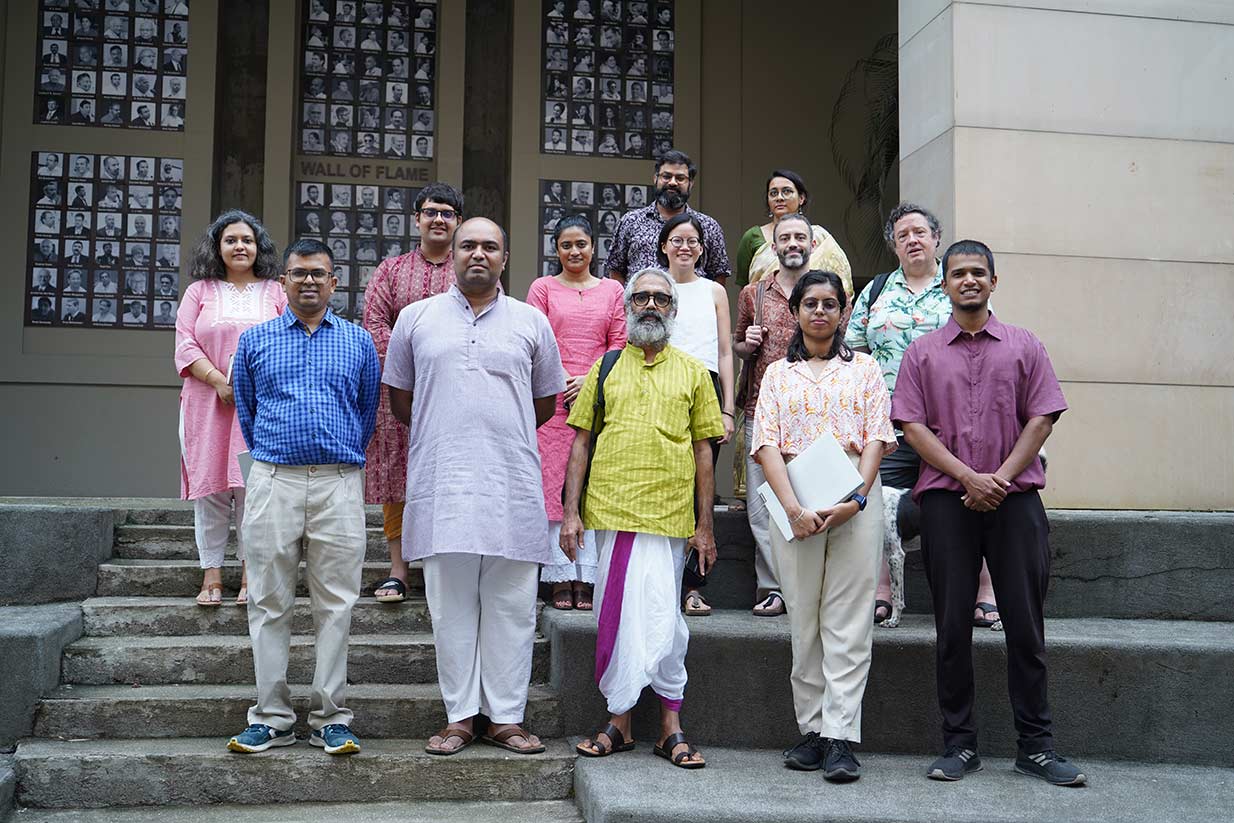
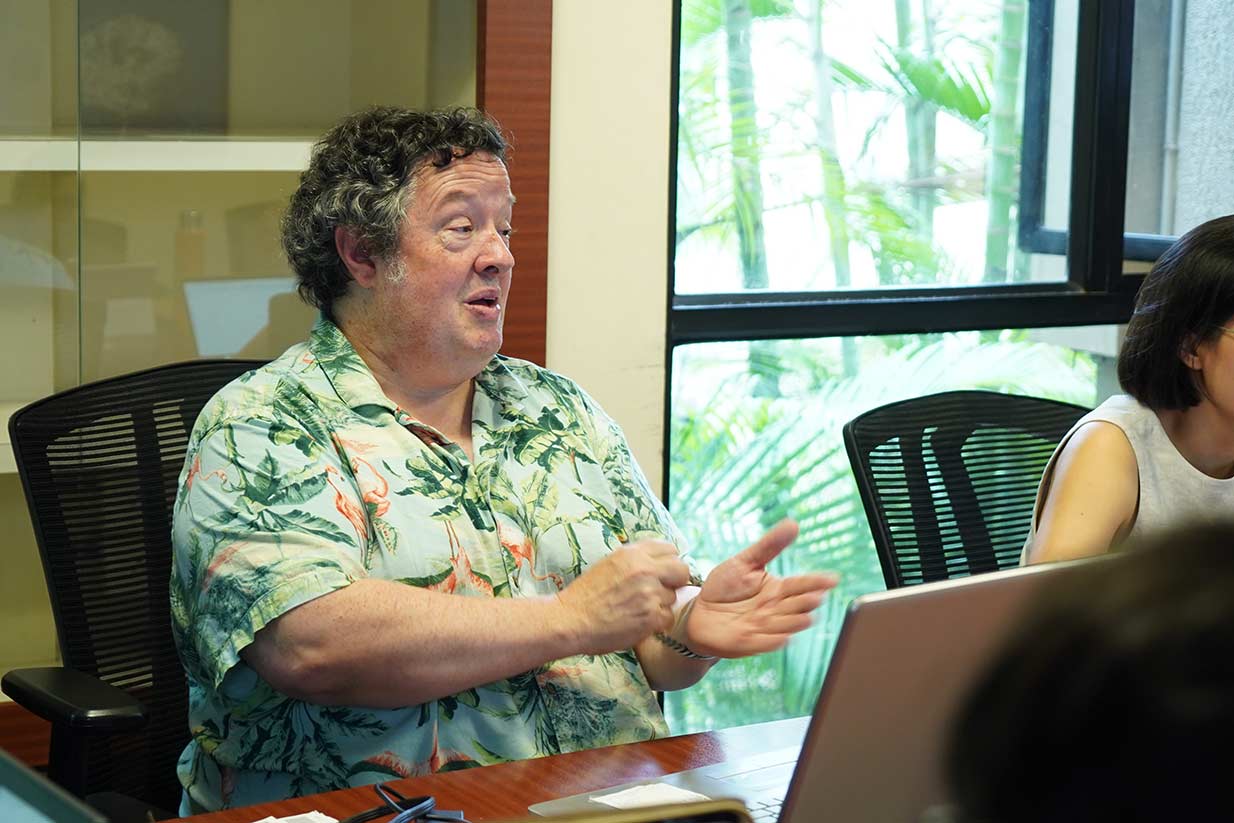
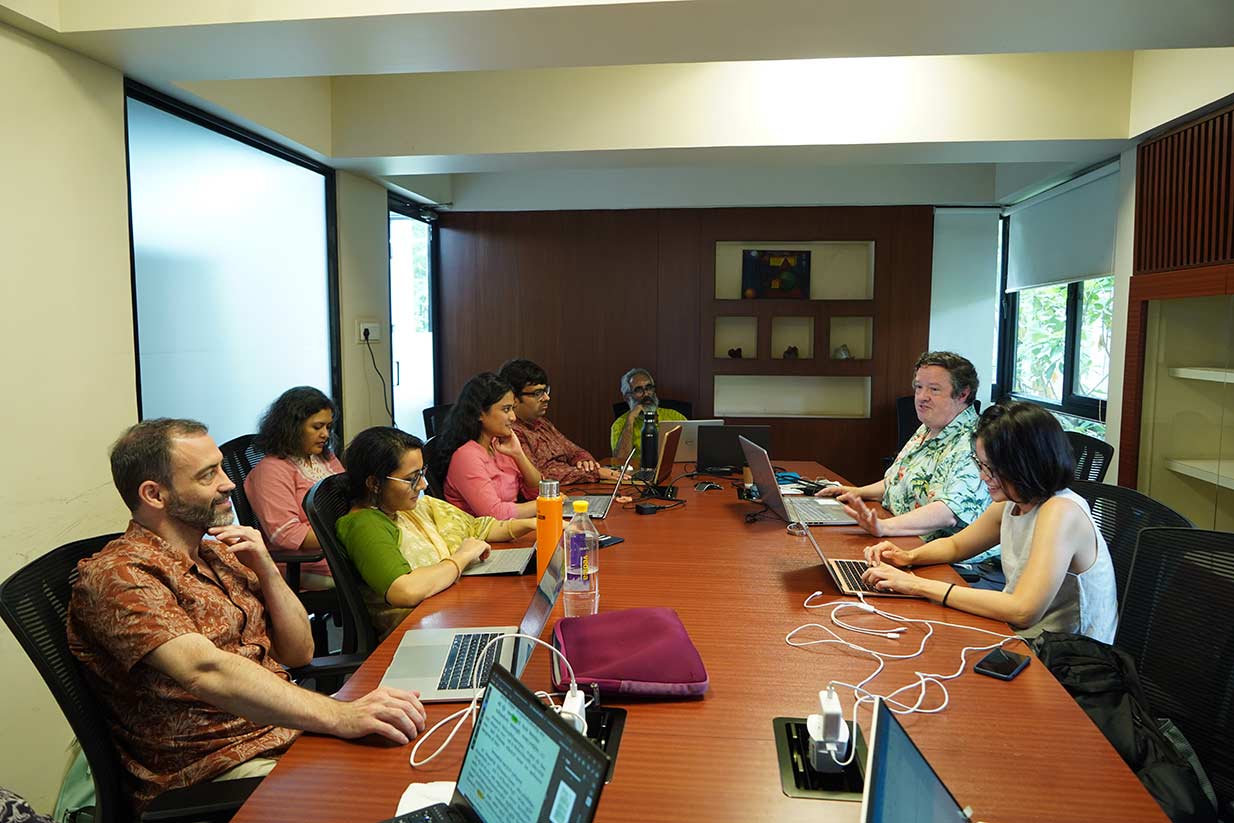
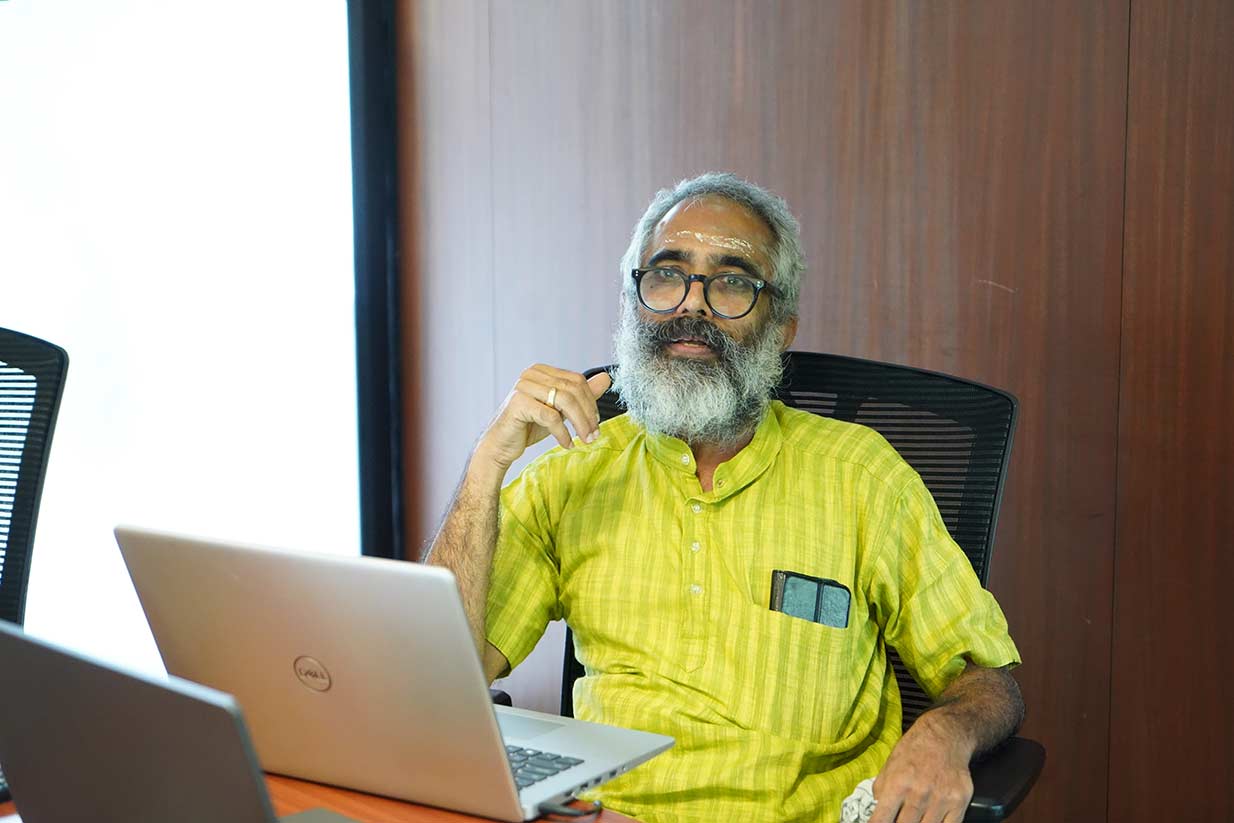
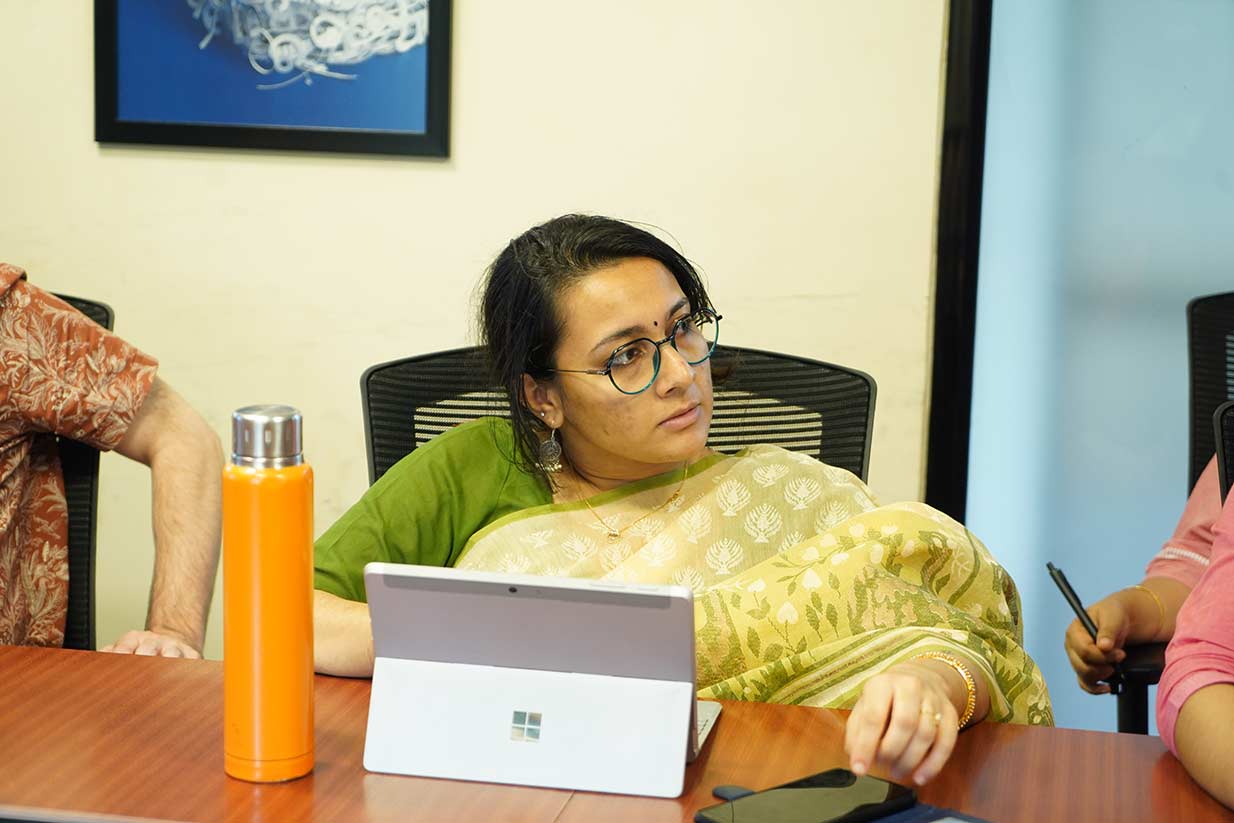

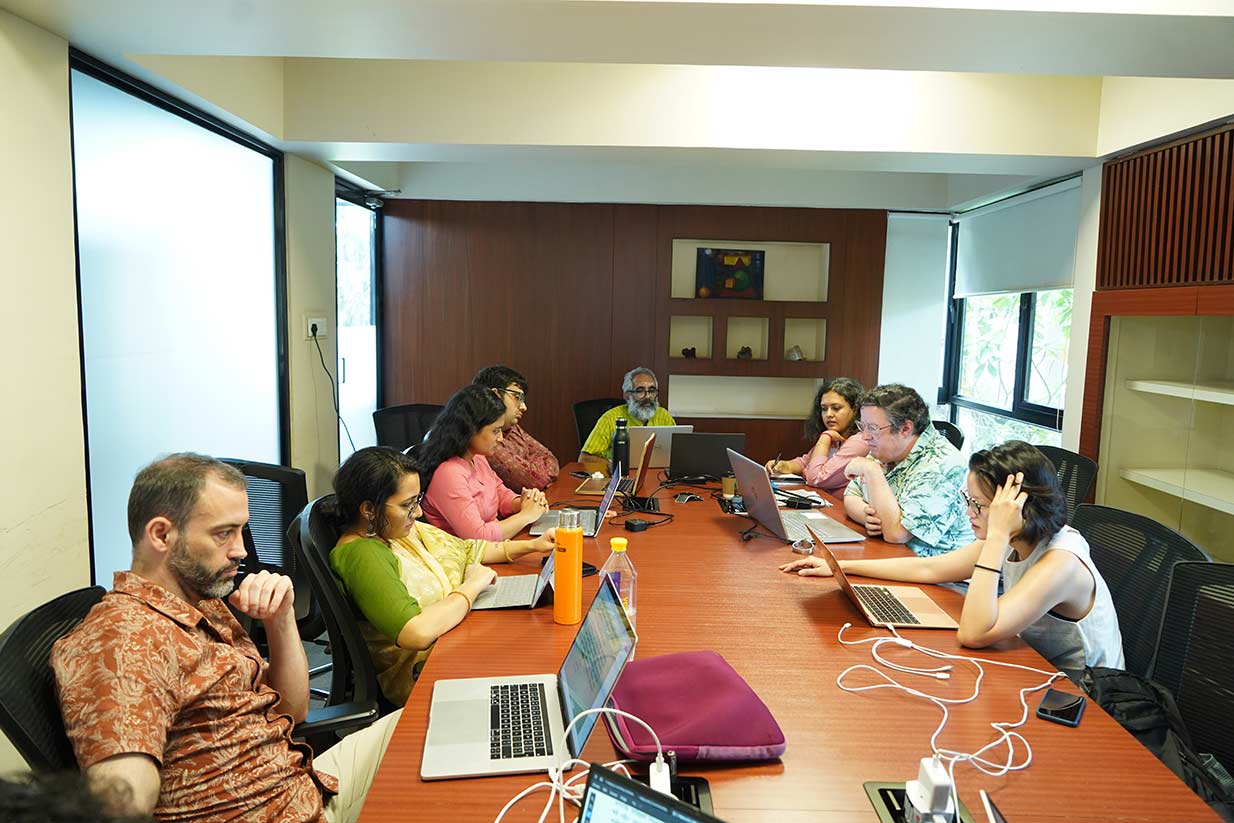
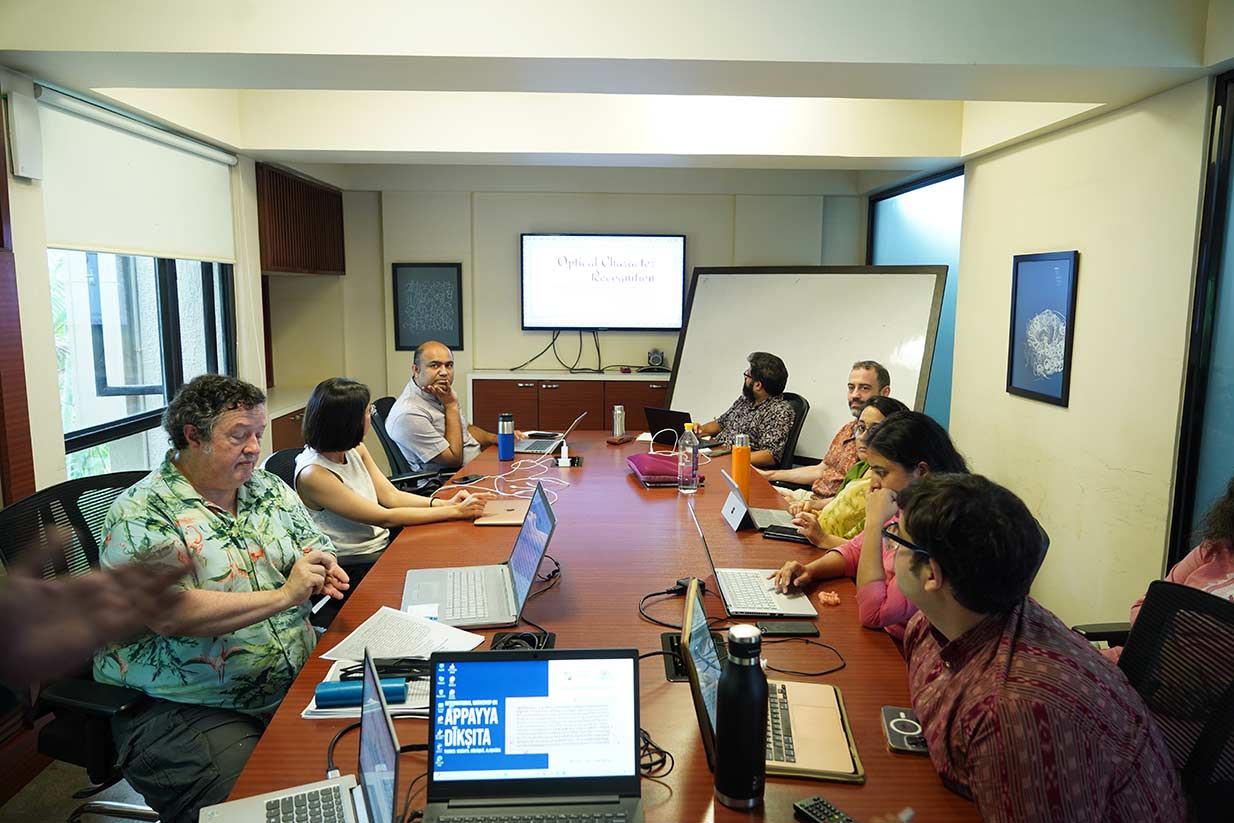
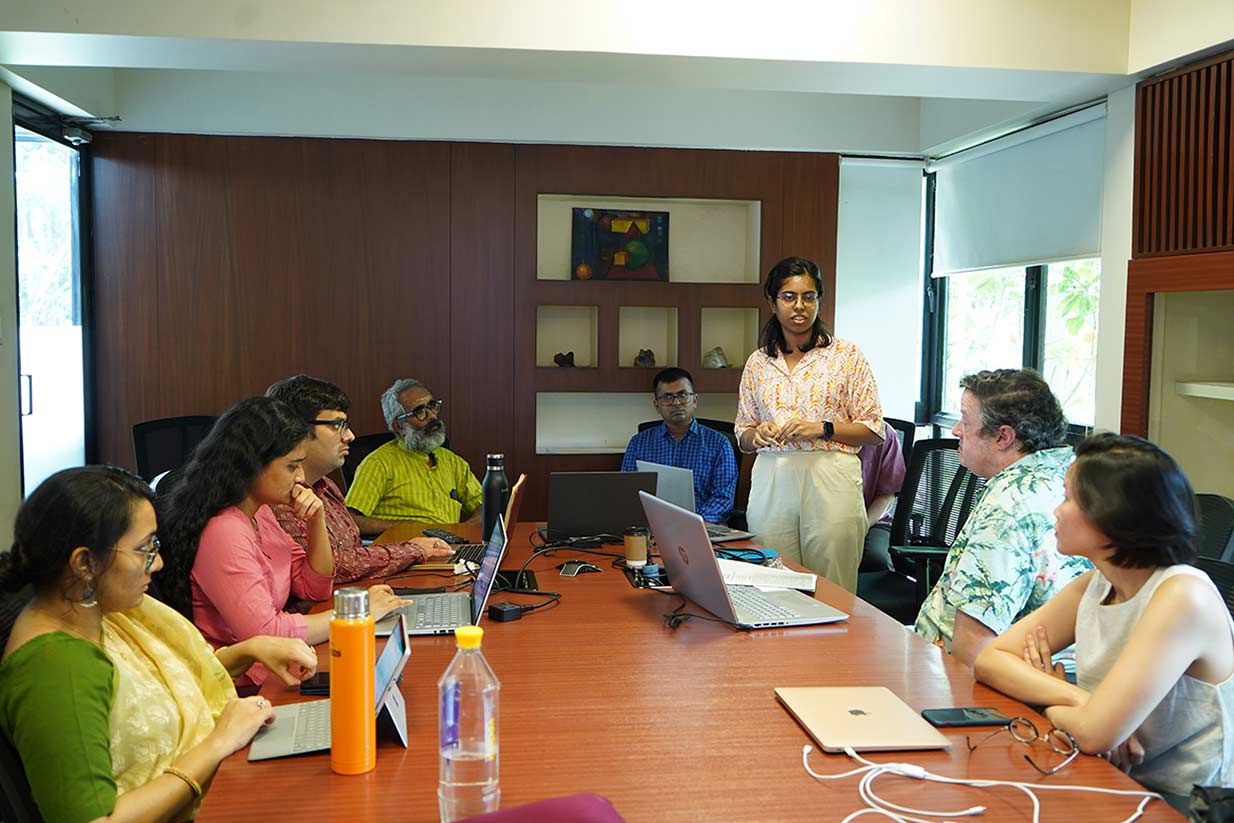
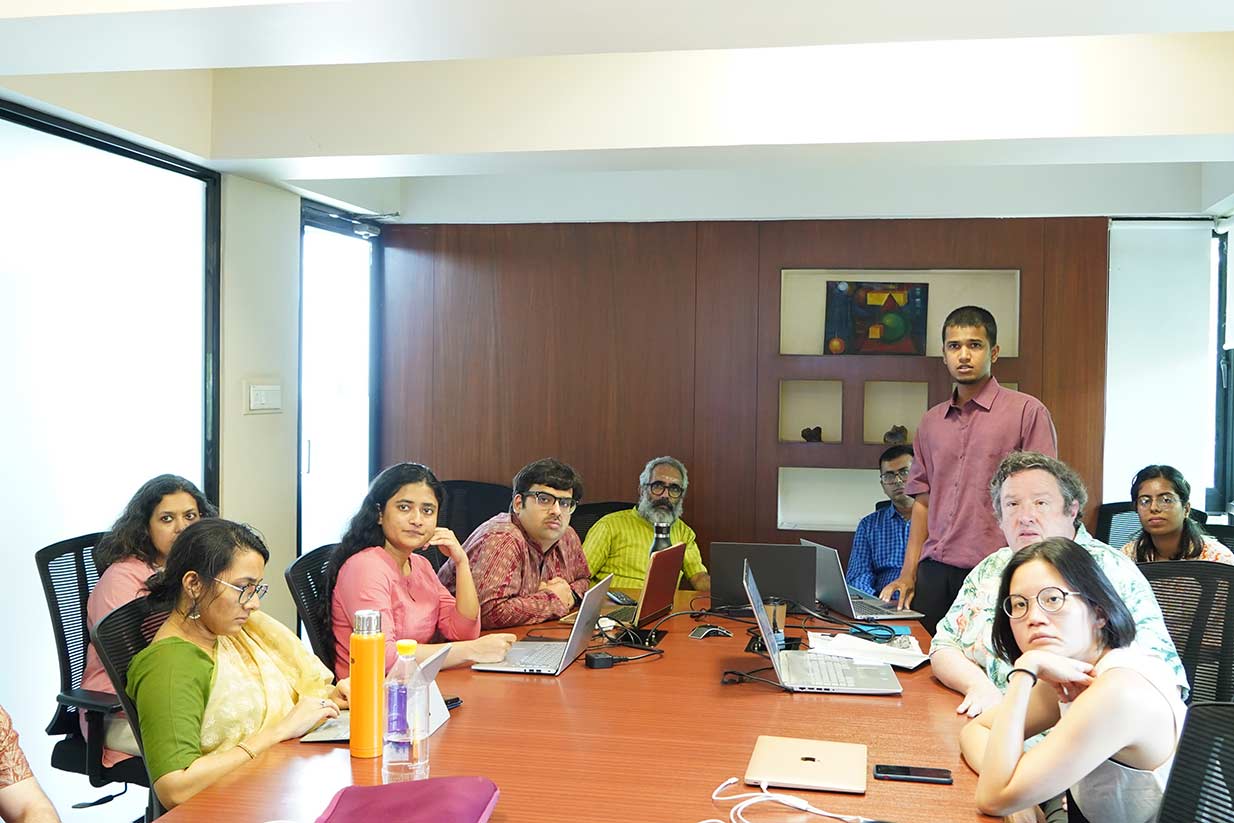
Lecture on Varna, Jati, and Caste
“The FLAME Itihaas Club and The India Centre organized a lecture by Prof. Pankaj Jain on Varna, Jati, and Caste in Oct 2024.
The Varna Vyavastha, often translated as the class system, remains a fascinating and highly debated topic in the study of Vedic culture. The Vedas, composed in archaic Sanskrit, continue to be an enigma, leaving much of ancient social history to be reconstructed through extrapolation from the later history of Indian society. While modern scholarship frequently employs Marxist and Weberian frameworks to interpret this system, Prof Jain’s lecture takes a distinctive approach, shedding light on some of the lesser-known aspects of Varna Vyavastha.”
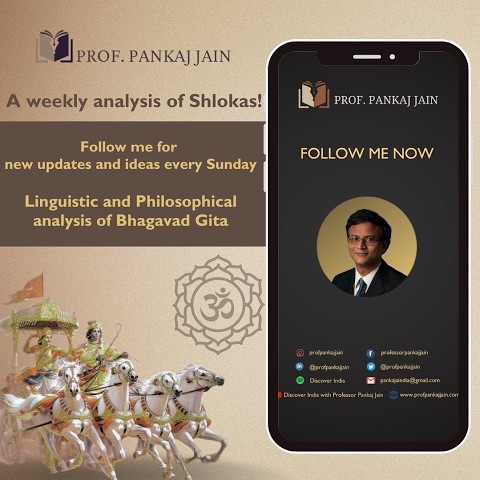
Gītā Darśan: A Series on the Philological & Philosophical Analysis of the Gītā
The pursuit of wisdom is never-ending. Researchers and scholars have provided their takes on the Bhagavad Gītā for thousands of years. Professor Pankaj Jain is an integral part of this long list of academically and culturally gifted individuals who have shared the knowledge dispersed through the Bhagavad Gītā so that laypeople can understand them. Professor Pankaj Jain is bringing you a weekly linguistic and philosophical analysis aimed at making you better understand and appreciate the nuances of one of the most revered Hindu texts.
Bhārat Darśan: Discover India with Prof. Pankaj Jain
Welcome to Bhārat Darshan, the Discover India Podcast. In this podcast, topics such as Indian Culture, Indian Classical Music, Sustainability, Hindu/Buddhist/Jain Studies, Film Studies, and Diaspora Studies are discussed with respective experts. Some of the episodes include presentations at various conferences and webinars.
